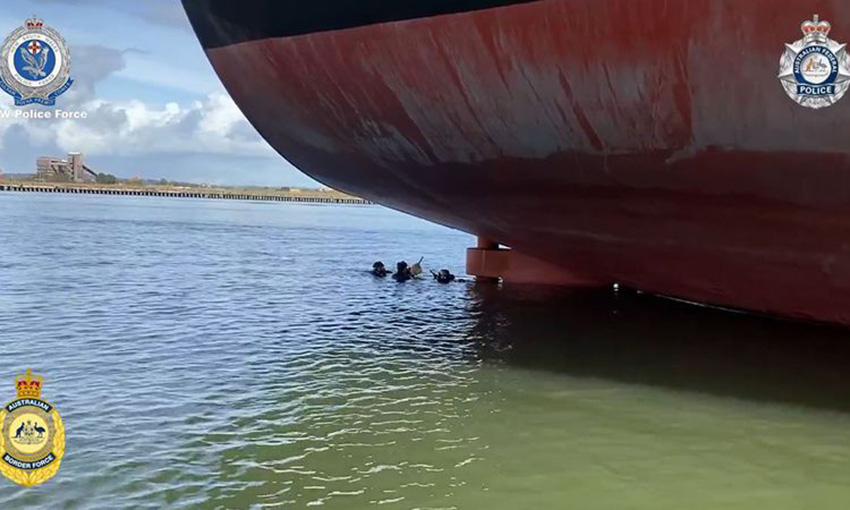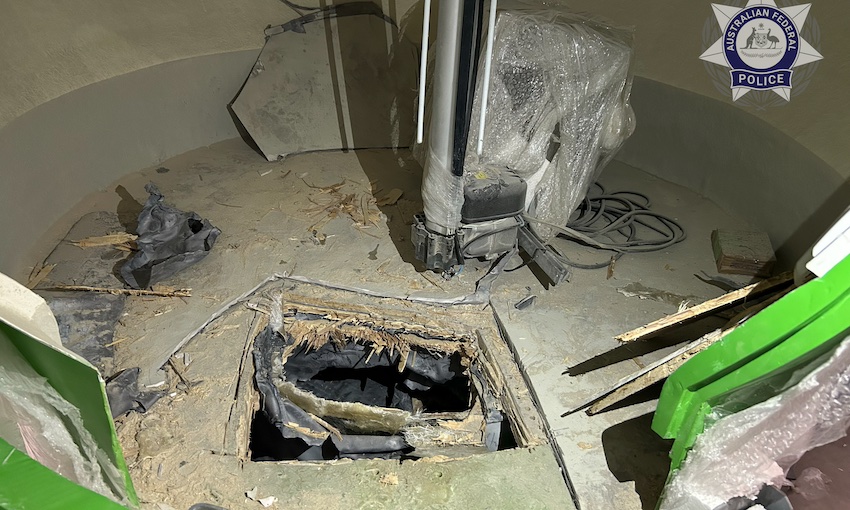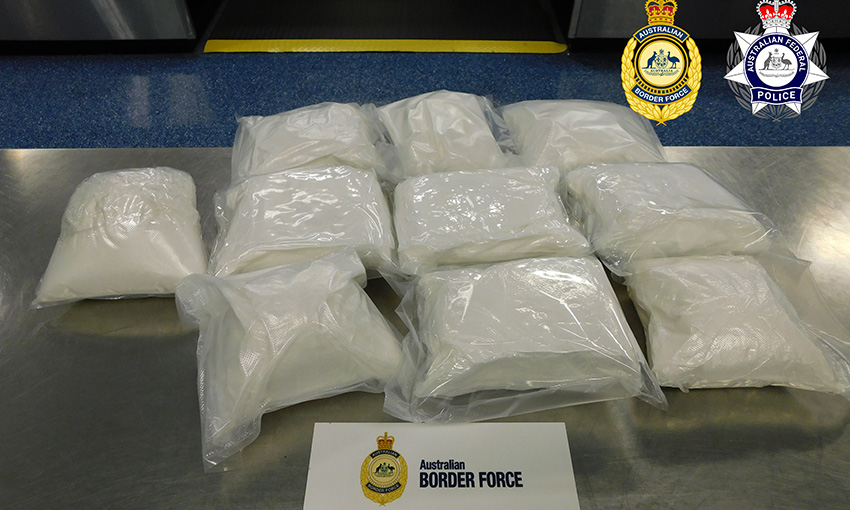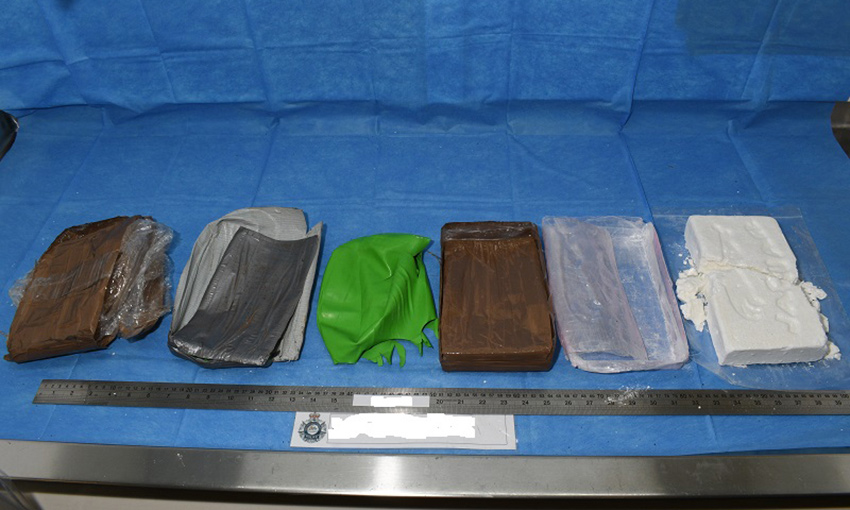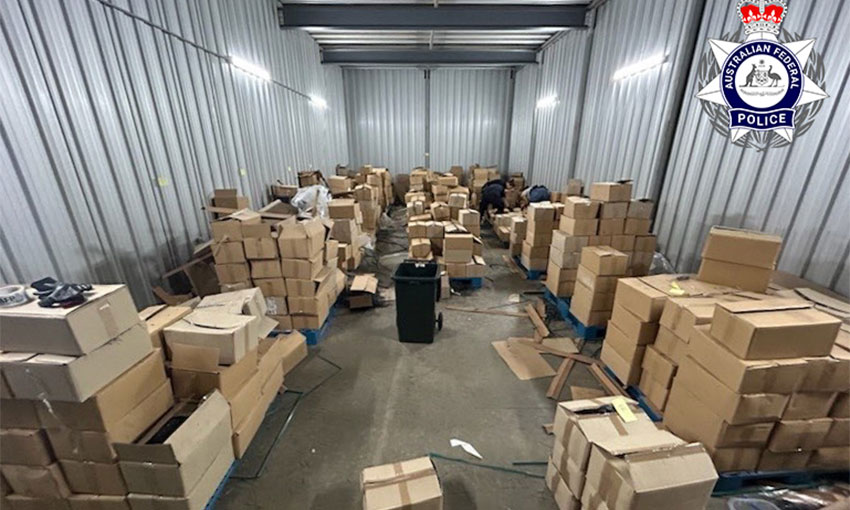POLICE have opened an investigation after the body of a scuba diver and more than 50 kilograms of cocaine were found in the Hunter River at the Port of Newcastle this week.
At about 0930 on Monday morning, emergency services were called to Heron Road at Newcastle after port workers discovered an unconscious diver near the berthed bulker Areti.Gr, near Kooragang Island. Members of the public and NSW Ambulance paramedics commenced CPR, but the man died at the scene.
Police have yet to fully identify the man, aside from the fact that he is a foreign national.
At a press conference on Tuesday, NSW Police Detective Superintendent Rob Critchlow said the man was dressed in “sophisticated” diving gear.
“During enquiries and investigations of the area, a large amount of what we believe are drugs were located not far from the dead man. Enquiries are continuing as to where those drugs came from and whether this man had a link to it at all,” DS Critchlow said.
“Enquiries have shown that on the night of the Sunday before, 8 May, an inflatable boat – a small rubber dinghy – and a five-metre aluminium vessel with a green stripe, were seen also near the ship conducting some sort of task of which we haven’t confirmed yet. We’re seeking public assistance to identify those vessels.”
Subsequently, second crime scene was identified further up the river after a second bale was located with no drugs inside, which police said indicates someone had broken it open and taken the drugs out.
Vessel searched
DS Critchlow said police and marine area command searched the vessel – both beneath and inside, and the entire crew had been interviewed.
DS Critchlow said NSW Police are aware of Newcastle being a transhipment point for drugs, and he said there are definitely people in the supply chain that assist organised crime groups.
“It’s a major concern to us,” he said.
“There have been some indication in the past of OMCG [outlaw motorcycle gang] involvement around the docks, and we’ve worked very closely with our partners to remove them from the system.”
Ports are a risk for drug smuggling
DS Critchlow said ports remain a point of risk for drug importation.
“Any port has a lot of movements, a lot of ships, a lot of trucks, a lot of people. It is easier to hide drugs among that. We know the Border Force spend considerable resources detecting those movements, but sheer volume makes it a risk. We are certainly concerned about the ports of Newcastle and Wollongong, and organised crime will look for weakness to target those ports.”
ABF acting Superintendent Tony Wheatley said concealing illicit drugs underwater on a ship is a method seen worldwide.
“The crew potentially have no idea that there are narcotics placed onboard the hull of the vessel – there are a number of different attachment points where narcotics can be concealed,” he said
“The ABF works very closely with NSW Police and the AFP if we have information, we’ll assess that, send divers down on those vessels and use other technologies such as remote-operated vehicles to support that.”
Marshall Islands-flagged Areti.Gr (IMO 9789893), left San Lorenzo, Argentina on 5 April, according to AIS data, and arrived at Newcastle on 8 May. The vessel is a geared bulk carrier. It is 199.98 metres long and has a carrying capacity of 60,243 tonnes DWT.
ABF in Newcastle “fully resourced”
Local media on Wednesday reported that federal Labour member for Newcastle Sharon Claydon said ABF officer numbers in Newcastle had nearly halved in recent times.
However, an ABF spokesperson said reports that staffing numbers in the Newcastle District Office had decreased or are not at capacity are untrue.
“The ABF Newcastle District Office is fully resourced and entirely capable of meeting the region’s operational requirements. In fact, the number of dedicated officers in Newcastle has increased over the past 12 months,” the spokesperson said.
“The ABF’s District Offices and Regional Ports are important elements of our capability and presence across Australia’s vast coastline. They enable the identification of and rapid response to border threats in regional areas.”
The ABF spokesperson said that ABF officers, including those in district offices, have the “agility and ability” to undertake a broad range of compliance and enforcement activities.
“We also have the ability to surge using sophisticated marine and air assets anywhere in the country at short notice to respond to operational requirements,” the spokesperson said.
“The ABF assesses vessels, travellers and cargo that cross the Australian border based on sound intelligence. This allows officers more time to undertake the range of duties under their remit.”
Police said anyone with information that may assist Organised Crime Squad investigators should contact Crime Stoppers: 1800 333 000 or https://nsw.crimestoppers.com.au.
This article has been updated to include comment from an ABF spokesperson.

